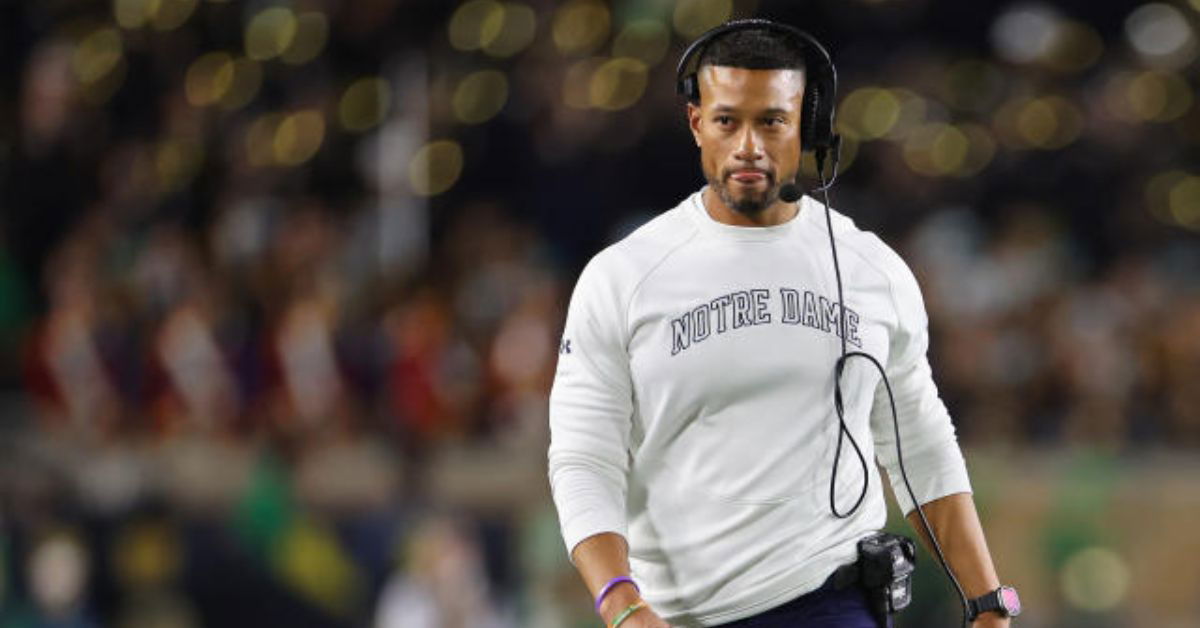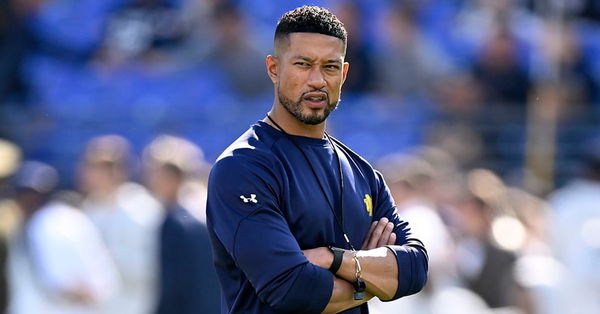

Notre Dame lost against Northern Illinois University in their Week 2 game by 16-14. After the Irish’s disappointing loss at home, another thing about the fixture came to light, which revealed the financial intricacies around schedules in college football. The sound matter pointed at college football’s biggest concern, “buy games“.
Watch What’s Trending Now!
Marcus Freeman0led Notre Dame started the last game as a 28-point pick, but it did not go per the plan. Dramatically, the Huskies managed to crack a last-minute field goal, which secured them their first-ever win in the season against a top-10-ranked team. This defeat came as a shocker after Notre Dame’s most celebrated victory against Texas A&M, which turned many heads in college football. This major payout comes out of a five-year-old contract that got highlighted after Notre Dame faced a loss at home, which has made people worried about such money-related commitments that, too, in the world of games, are unpredictable.

ADVERTISEMENT
Given Notre Dame’s loss, major money loss is also involved. Notre will have to pay $1.4 million during the next 60 days after the game day. They arranged it long before the game day between these two programs. In a similar event, the Irish faced a costly loss to a group that included five opponents, Marshall, during the 2022 season, for which they paid a huge amount of $1.25 million to Thundering Herd. If you are unaware, there is practice going on in college football for bigger programs to pay smaller programs certain amounts of money to fill their schedules.
ADVERTISEMENT
The reason behind Notre Dame’s financial commitment
Smaller programs benefit from these “buy games” in their schedules. On the other hand, it plays as an opportunity for larger groups to ensure their high rankings. However, given Notre Dame’s situation, it’s crystal clear that such money-related commitments can backfire, which leads the team to face drastic results that jeopardize their chances of a successful season. It also affects a college’s competitive liabilities along with disturbing their budgets. Currently, it’s a lesson for other programs as well that regardless of financial investment, anything can happen at the next moment while dealing with games and stuff.
After this incident surfaced, Notre Dame and other programs have also been thinking of reevaluating their scheduling systems. Such commitments come with a risk factor that can turn the most favorable games into the most costly defeats. After learning from Notre Dame’s experience, other teams have also taken notes. Besides that, let us know in the comments about your thoughts on this matter.
ADVERTISEMENT
ADVERTISEMENT
ADVERTISEMENT
ADVERTISEMENT

